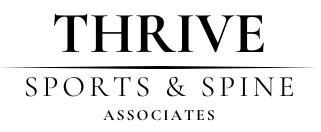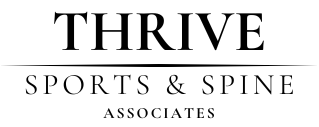Why Your Brain May Be Slowing—Even When You’re Training Hard: The Inflammation–Cognition Link for Athletes and Active Adults
At our chiropractic office, we focus on more than just pain relief and alignment. True performance and recovery start with how well your body and brain communicate. A new study reminds us that inflammation, often seen as a purely physical issue, also impacts your cognitive performance.
A recent cross-sectional study, “Inflammation and cognitive performance in elite athletes” (Wiedenbrüg et al., 2024), explored how inflammatory markers, metabolic hormones, micronutrients, and recovery status relate to cognitive functions in 350 elite athletes. The findings highlight how systemic inflammation and nutritional status influence brain performance, directly affecting how athletes think, react, and recover.
Key Takeaways
- Inflammation matters for cognition. Elevated pro-inflammatory cytokines (like TNF-α) were linked to poorer working memory and reduced cognitive flexibility, particularly in athletes from closed-skill sports.
- Vitamin D supports brain performance. Higher vitamin D levels correlated with improved cognitive flexibility.
- Hormones, stress, and recovery are interconnected. Processing speed and attention were best explained by a mix of metabolic hormones and physiological/psychological stress levels.
What This Means for Chiropractic Patients
Chiropractic care supports nervous system balance, which plays a key role in inflammation regulation and brain–body communication. This research highlights that cognitive performance isn’t just about “mental focus”, it’s influenced by your physiology.
- Chronic inflammation can dull your brain. Even low-grade inflammation affects how quickly your nervous system processes information.
- Recovery is brain training. Sleep, nutrition, and stress management enhance both musculoskeletal and cognitive recovery.
- Chiropractic care supports total performance. By optimizing nervous system function and joint mobility, chiropractic helps reduce physiological stress and improve neuromuscular communication.
Actionable Tips for Athletes and Active Adults
- Prioritize sleep and active recovery to reduce systemic inflammation.
- Support your body with anti-inflammatory nutrients (omega-3s, vitamin D, and antioxidants).
- Include regular mobility and chiropractic care to keep your nervous system adaptable and responsive.
- Address stress holistically, mental, physical, and nutritional.
In Summary
The brain and body are one system. Your training, recovery, and inflammation levels shape how effectively that system functions. Chiropractic care fits into this picture by helping regulate the nervous system, support recovery, and optimize both movement and cognition.
Reference:
Wiedenbrüg, C., et al. (2024). Inflammation and cognitive performance in elite athletes: A cross-sectional study. Brain, Behavior & Immunity – Health, 36, 101431.
https://doi.org/10.1016/j.bbih.2024.101431












